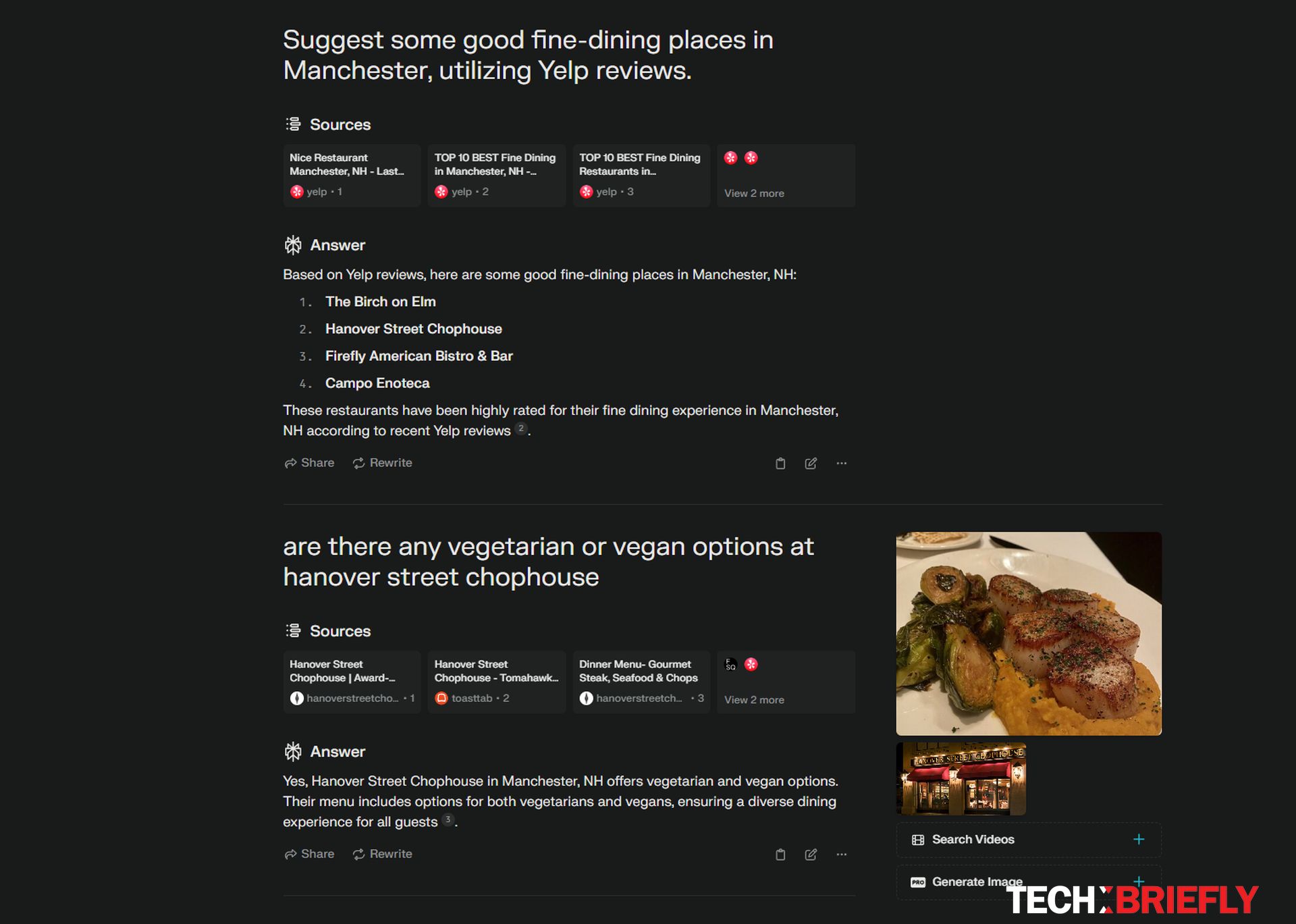Search engines have become indispensable tools for finding what we need online.
However, the sheer volume of results can be overwhelming, often leaving us unsure of which information to trust.
Perplexity, an AI-powered search engine, is planning to change the search experience by directly answering questions and now, providing even deeper insights by incorporating Yelp reviews and location data.
One more step from Perplexity to ‘outsmart’ search engines
Perplexity has already made waves with its ability to provide concise, factual answers generated by advanced language models. Rather than simply presenting a list of links, Perplexity analyzes information from various sources to give you a direct, summarized response.
These features are already too much on top of a standard search engine, Perplexity is now directly tapping into Yelp’s vast database. This means you’ll get up-to-date and reliable recommendations on restaurants and cafes with all the essential details like photos, descriptions, and reviews.

True to its style, Perplexity still prioritizes transparency by providing links back to Yelp pages.
Perplexity isn’t just using Yelp’s data at will. They’ve struck a licensing deal, emphasizing the value and authority Yelp data carries.
But how about our data?
Don’t underestimate the elephant in the room
Now let’s address the elephant in the room: Our data, the gold of our age.
With the Yelp integration, Perplexity also uses your location to refine its search results. Every moment, every second, our searches, our movements, and sadly, even our conversations are algorithmically processed. (Just mention a product near your phone, and within hours, targeted ads will fill your screen).
Yes, in the name of transparency, app owners ask for permission – but it’s worth carefully considering that “I agree” button.
Each time we use these tools, artificial intelligence algorithms learn more about us, fueled by our data. Should we so willingly feed these algorithms, potentially handing over our data without understanding how these companies will use it, especially in a world already vulnerable to manipulation?
This concern isn’t just theoretical. Consider Sam Altman, CEO of OpenAI, the company behind ChatGPT. He raised a crucial question when Q-star was first leaked:
“Is this a tool we’ve built, or a creature we have built?”
– Sam Altman
A day before Sam was fired, he gave this chilling speech:
“Is this a tool we’ve built or a creature we have built?”
This timeline would add up with the recent discovery of Q*. pic.twitter.com/BnjcHsdSnl
— Rowan Cheung (@rowancheung) November 23, 2023
If a leader in AI expresses such caution, imagine what smaller companies, driven by different motives, might create with these algorithms…
What about restaurant owners? Let’s say Perplexity gains immense popularity and develops an algorithm rivaling Google’s (though we remain skeptical).
Do you think we won’t see a surge in fake Yelp reviews, crafted by restaurant owners seeking an edge?
My point is: Let’s not sacrifice our trust in genuine experiences and opinions for the illusion of a technologically “smart” life. Especially if the future we choose puts us in a terra cotta aquarium.
Featured image credit: Jay Wennington/Unsplash.





